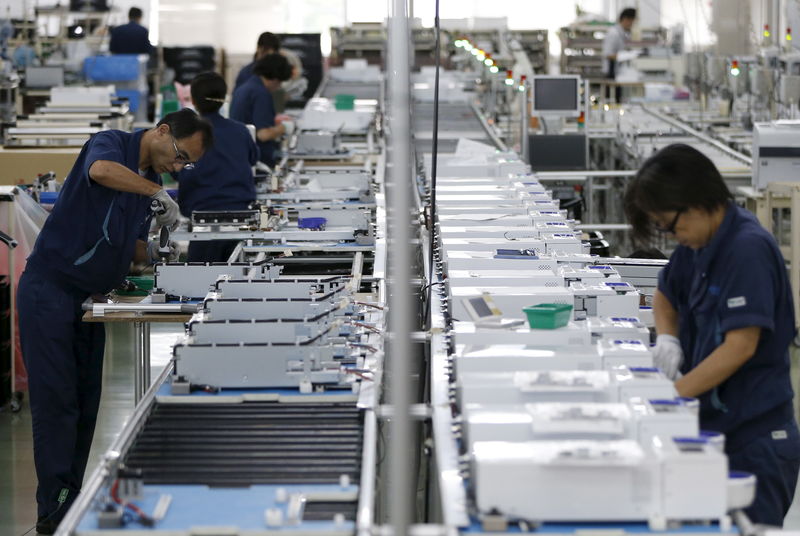TOKYO (Reuters) - Japanese manufacturing activity swung back into contraction in May as export orders fell at the fastest pace in four months, highlighting why policy makers and investors remain anxious about the growing economic impact of a bruising Sino-U.S. trade war.
The Markit/Nikkei Japan Manufacturing Purchasing Managers Index (PMI) fell to a seasonally adjusted 49.6 in May from a final 50.2 in the previous month.
The 50 mark separates contraction from expansion, and the latest result dashed expectations that Japan's crucial manufacturing sector had started to bottom out after shrinking in both February and March.
"The re-escalation of US-China trade frictions has heightened concern among Japanese goods producers," said Joe Hayes, economist at IHS Markit, which compiles the survey.
"Underlying growth weakness across much of Asia led to struggling exports, which fell at the sharpest rate in four months."
The index for new export orders fell to a preliminary 47.1 from a final 47.8 in the previous month for the sixth consecutive month of contraction. Furthermore, companies' expectations for future output showed contraction for the first time since November 2012.
On Wednesday, official data showed Japan's exports shrank for the fifth consecutive month in April, with shipments to China falling again.
The gloomy readings for the world's third-biggest economy come as the dispute between the United States and China over trade and industrial policy has taken a nasty turn. The U.S. government this month sharply increased tariffs on Chinese goods and blacklisted Chinese telecom equipment company Huawei Technologies Co Ltd from buying U.S. technology.
Japan is also negotiating with the United States over trade. U.S. President Donald Trump has made it clear he is unhappy with Japan's trade surplus with the United States, much of it from auto exports, and wants a two-way deal to tackle it.

Japanese policymakers worry Trump could target Japanese autos with tariffs or quotas to lower the U.S. trade deficit.